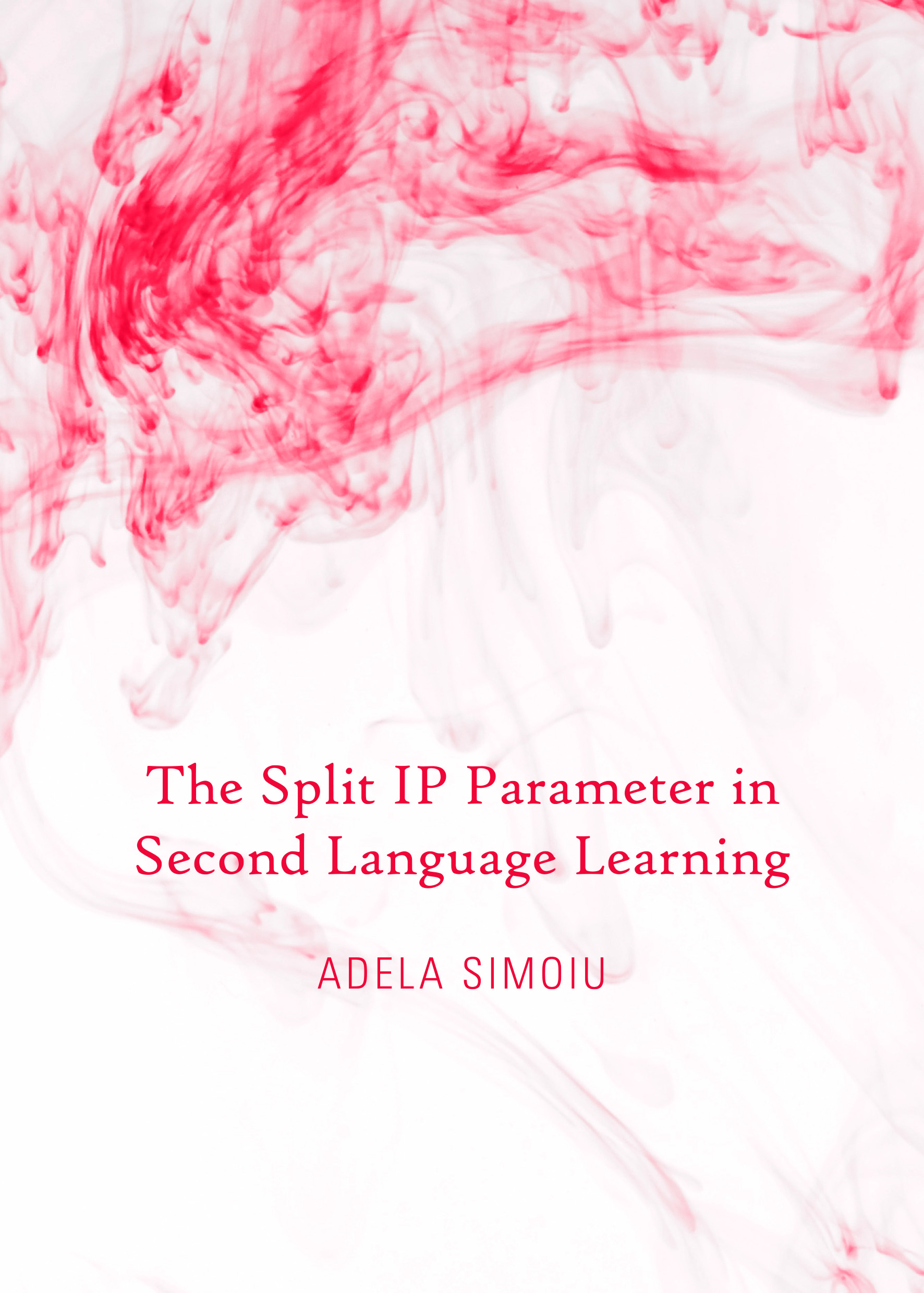The Split IP Parameter in Second Language Learning
The book addresses some important issues in second language acquisition research, such as access to Universal Grammar, the factors that account for success or failure in L2 learning, as well as parameter (re)setting, within the generative framework. The empirical data against which the research hypothesis is tested come from two main studies: a longitudinal one, involving beginner learners, and an experimental one, with elementary and advanced learners; all subjects are adults learning English in a formal instruction setting, with Romanian as L1.
Starting from Chomsky’s (2005) account of first language acquisition in terms of three factors, namely genetic endowment, experience and non-linguistic principles, the first chapter of the book explores the question of whether the same three factors may be operating in second language learning. The rest of the book focuses on more specific research issues related to access to Universal Grammar and parameter (re)setting. Since L1 acquisition is defined mainly as the process of parameter setting on the basis of the input, parameter setting is expected to be at the core of L2 learning as well. However, in the literature, it has often been argued that one of the most important differences between L1 and L2 acquisition is related precisely to this process.
The parameter which the book focuses on is the split IP parameter (Bobaljik and Thráinsson, 1998), in the case of Romanian L1 learners of English as L2. Romanian is (+ split IP) while English is (- split IP). In this case, the learners would need to move from the positive (+) value of the parameter to the negative (-) one, i.e. from a wider set of property values to a more restrictive one. There are three possible scenarios: (i) the L2 learners set the negative (-) value from the target language from the very beginning, on the basis of input alone; (ii) the learners first transfer the positive (+) value from their L1 and reset this value to the L2 negative (-) one as they progress in acquiring the L2; the final state is L2-like; (iii) the learners first transfer the positive (+) value from their L1 but resetting is impossible; the L2 underlying representations are different from those of native speakers even with advanced speakers, and what may account for final L2 state is parameter learning. These scenarios are explored with the help of the data provided by longitudinal and experimental studies.
Adela Simoiu obtained her PhD in Second Language Acquisition from the University of Bucharest in 2012. She also holds an MA in Applied Linguistics. Her current research interests focus primarily on second language learning, language acquisition, and the syntax of Romanian.
“The book represents the first study on the acquisition of the Split IP Parameter in L2 English by Romanian learners. Starting from longitudinal and experimental data, the author raises interesting questions about the role played by Universal Grammar, input and non-linguistic factors in second language learning, to which she provides original answers.”
—Anca Sevcenco, University of Bucharest
“This book explores in detail the setting of the split-Inflection parameter in L2 English by adult speakers of L1 Romanian on the basis of both experimental and longitudinal data. Among the conceptual issues raised by the author is the role of ‘third factors’ in the design of second language grammars and the question whether explicit instruction can impact on parameter (re)setting. Although the main focus is on the split-Inflection parameter in second language learning, the book also represents a valuable contribution to the description of Romanian syntax. Adela Simoiu offers a solid analysis of this parameter in Romanian, building on careful investigation of the empirical data within the generative perspective.”
—Larisa Avram, University of Bucharest
Buy This Book























